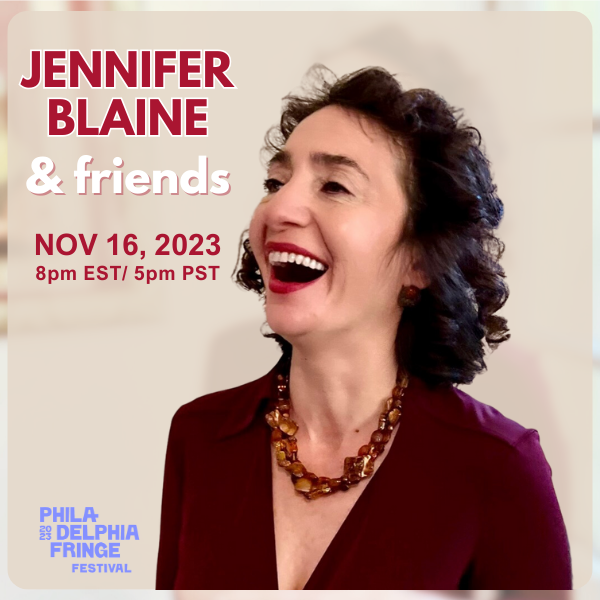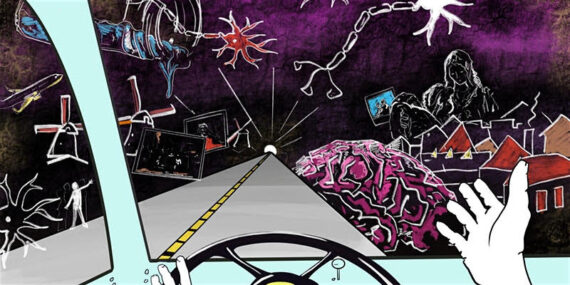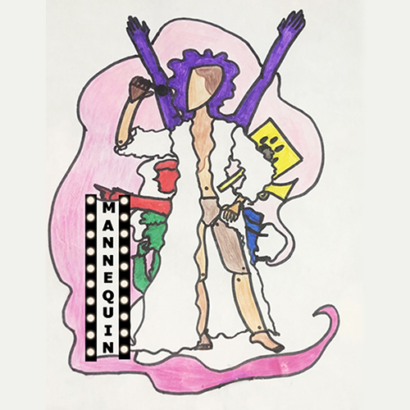Meg Zocco
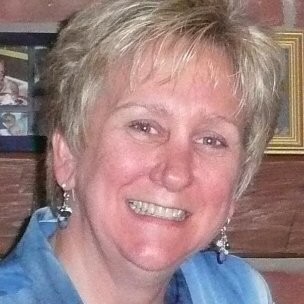
I was just a freshman at Wesleyan University, but I wanted out. It made no sense. I loved WESLEYAN. I had been looking forward to being there for so long. Back at Stuyvesant HS my friend Danny Grant, who was a year ahead of me, returned from his visit there exclaiming that he knew that not only he but I would someday attend Wes. Fast forward to my early decision acceptance. Everything was set.
In my first semester I took physics, directed experiences in acting, Spanish Literature, and intro to sociology. I also signed up to be one of the student representatives on the EPC, the Educational Planning Council, which was comprised of tenured faculty, lifetime administrators and two student reps. There was one student rep. and I was the other. I was in over my head. I was expected to weigh in on policy at the EPC, and then in classes I was a guinea pig (actor) for scenes from classic American plays directed by juniors and seniors, read Latin American literature in Spanish, and was expected to understand physics on the college level. My head swirled. I chose all these things. They genuinely interested me. The only trouble was I could not find myself anywhere in there. I had been an A+ student at Stuy. But here at Wesleyan I was expected to engage because of my own genuine interest. The trouble was I had none.
Enter Meg Zocco. Meg Zocco was the Dean for the incoming Freshman class. I knew her from letters sent before I ever reached campus. But then face to face with her during summer orientation I learned she was there to assist me to get acclimated. She brought the singer songwriter Christine Lavin — whom I loved!— to perform for us at the Center for the Arts. She guided us into a circle and then had us sit down and feel the support of the person behind us. Meg and I would wave as we passed each other on High Street. I pretended I didn’t need her.
Trouble is I liked her. I was always curious about her. She was insightful and beautiful and a little edgy. She seemed to be deeply self respecting while also getting her job done. How did she do that?
And so one day, as I struggled to comprehend Isabel Allende’s Casa de Los Espiritus, I found myself waiting outside Dean Zocco’s door to grab what I thought would just be a few minutes of Meg’s time. But once she ushered me into her office, to sit in the heavy brown wooden furniture, I sunk into a deeper truth.
“I don’t want to be here anymore.” I blinked, shocked at my own admission. What was I saying? I loved WESLEYAN. I was passionate. I loved all my classes. I was directed by Dar Williams in a scene from ENDGAME by Samuel Beckett. I was in love with the people. I made lifelong friends with Andrew Boorstyn, Nikki Hubbard and my other housemates at Greenhouse the first day! My parents and I were captured in a picture on the cover of the guide for parents’ weekend. I was literally the cover girl for WESLEYAN.
“What is hard about being here?” Meg leaned in with zero shame or judgement.
“I love WESLEYAN, but I don’t know why I’m here. It makes no sense to me. I worked so hard to get here.”
“Maybe it’s not the right moment,” Meg offered. “Do you think you need something else?” Again, Meg left so much space. She waited.
“I can’t go home because my parents won’t let me just drop out. I need to have a plan. I need something. I don’t know what to do.”
And then, Meg Zocco gave me a life lesson. It is a life lesson that I have used with hundreds of coaching clients over the years since then. She said, “make a list of the reasons to leave and the reasons to stay. List all the pros and cons.” I did. “Now Jennifer, try the totality of each scenario on. Which is the one that feels right?”
And I sat there facing the two choices and I didn’t want to drop out of WESLEYAN, but I could see clearly for the first time I could not stay. I was 18 and had made my first life choice as a semi-adult.
“Sometimes it’s not clear which is the best choice to make, but we do the best we can to make the choice that we can live with,” Meg offered.
I felt relieved and terrified. Meg assured me I had actually figured out what to do.
“But my parents won’t approve of this,” I told her. “They will kill me.” I told her. “Not necessarily!” She winked.” Let me talk to them.” I don’t know what she said to reassure my parents that I was not completely irresponsible and to permit me to live another day. And I don’t know why in my memory they somehow instantaneously materialized on campus. I can picture them there, in Dean Zocco’s office, unhappily accepting my decision. Yes, they were disappointed. You can’t always have everything!
I proceeded to devise a plan. I found a job through the career planning center as an aide at Perkins School for the Blind (where Helen Keller studied) where I worked with deaf blind retarded children. I secured a job, housing, income, and time to better listen to who I was and what I needed. I saved my money and when I completed my internship, I headed to Aberdeen Scotland to be in the Leaveners theatre company and participate in an international theatre festival. Then I traipsed through Spain by myself to get closer to Unamuno and Lorca and all the other writers I had only studied in books. Come August I was ready to return to Wesleyan. I studied theatre, Spanish, and became a women’s studies major because I now could hear my true self and I really wanted to hear and tell women’s stories of how they changed their own and others’ lives. And I completed my degree in 3.5 years, so I somehow got my education discounted so at least I managed to get that bonus for my parents.
Meg Zocco. Does she know how much she changed my life? Does she know how much she helps every person she touches in the Wesleyan community? And how do we in turn touch countless other lives? She has moved through a variety of positions at Wes over the years, but 33 years later she is still there. Now in parent relations, working with parents of students, some who were once Wes students themselves. Is it even possible to measure the impact of all she has brought to these relationships? I am just one student out of a class of 700 in one of those years. She personally supported, counseled, and mentored me. She changed my life so I was able connect with and honor myself. And I know she’s done that for countless others.
Influence
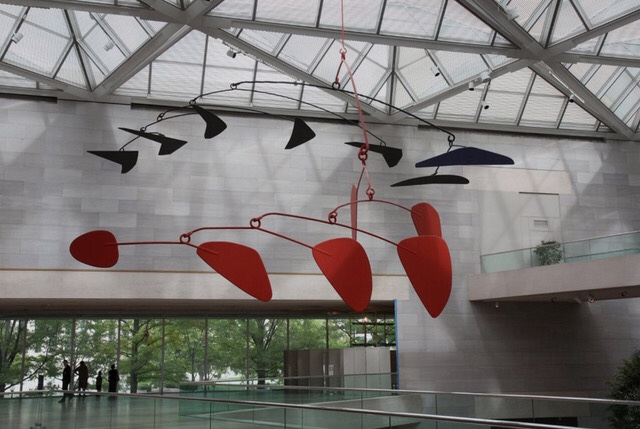 I really enjoyed reading a new book by Gay Hendricks over the winter break. (I got my coaching certification from The Hendricks Institute which he created with his luminous wife Kathlyn Hendricks.) In “The Joy of Genius” Gay talks about the value and importance of recognizing there are many things we don’t have control over and some things we do. Yes, you may also recognize this as the serenity prayer, and I wrote about the concept in an earlier blog post as one of the main teachings of the philosopher and once-slave Epictetus. I’ve encountered some people that say we don’t have control and it’s best to let go regarding just about everything. I find that very hard and sometimes a very boring attitude to have about life. I like trying to go for things, even if they seem unlikely. Where does that leave me?
I really enjoyed reading a new book by Gay Hendricks over the winter break. (I got my coaching certification from The Hendricks Institute which he created with his luminous wife Kathlyn Hendricks.) In “The Joy of Genius” Gay talks about the value and importance of recognizing there are many things we don’t have control over and some things we do. Yes, you may also recognize this as the serenity prayer, and I wrote about the concept in an earlier blog post as one of the main teachings of the philosopher and once-slave Epictetus. I’ve encountered some people that say we don’t have control and it’s best to let go regarding just about everything. I find that very hard and sometimes a very boring attitude to have about life. I like trying to go for things, even if they seem unlikely. Where does that leave me?
What’s left is influence. Once we let go of the things we can’t control (our thoughts, the past, the future, controlling other people, worrying about what people think of us) we can appreciate and better see what we want to create now. I like to envision that power to influence a situation as if I were engaging an Alexander Calder mobile. It’s huge, like the world. I may not transform it or radically dismantle it, but my influence can utterly shift its orientation. Although it’s mammoth, I can influence it. The winds can change how they go around it. I also may enjoy the process of moving its awesomeness. My perception of myself changes too.
I also find that from that spirit of influence some things come to me easier. I am not attached. I stop trying to get things right and make offers, sometimes even grand visions. Just today I was writing to the head of a college department about all the benefits of what I bring as a performer and speaker and how someone I apprenticed from my college 7 years ago, has gone on to become a screenwriter in LA, living their dream. I can’t take full credit for this achievement, but I know I influenced her to go for her dream. Influence is a delicious and inviting way to engage people to play and dream big. The professor actually wrote me back with enthusiasm. Will I get to perform for and mentor her students? I don’t know, but I am playing with the mobile and dancing in the prospect of making it happen.
Are there ways you want to play with moving out of trying to control and into influence? Let me know how it feels for you to tap the mobile.
Faith
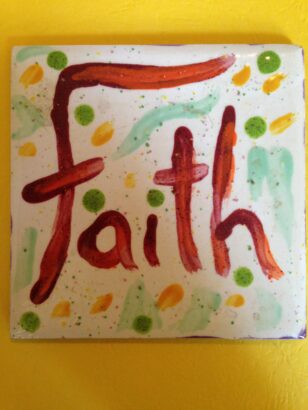
Many people have been asking me recently for advice on how to have faith. Not the religious kind, but the faith in dealing with everyday challenges.
One client of mine is undergoing IVF. She devoted her time, energy, and vacation days from her high-powered job so she could undergo the procedure. She and her husband really wanted it to work. After all that, she found out it was unsuccessful.
“The doctor says there is nothing wrong and that the chances that it will eventually work are in my favor,” she told me. “The thing is for now I am just so broken-hearted and disappointed. How am I supposed to keep going, when there’s no guarantee it will work?” she asked.
There was a philosopher named Epictetus who said, “There is only one way to happiness and that is to cease worrying about things which are beyond the power of our will.” This brilliant advice came from someone who was born a slave in 55 AD, but later in life became an advisor to not just one, but two Roman emperors!! The desire to influence things beyond our will is what still tortures many of us. We wish we could control things: our bodies, our feelings, our thoughts, other people, even our sports teams winning! But in fact, when we start to examine what we have control over we begin to see that we have much less than we thought. So where does that leave us?
“We don’t have control,” I told my client, “But we can shift to being willing to have things go well.” One of my favorite self-help gurus is Louise Hay. She offers the saying “I am open and receptive to all good.” What a beautiful intention. As soon as my client tried adopting a willingness to have things work out, and let go of her fears and insecurities, she felt at peace and more assured. She wasn’t giving up by stopping her worrying or feeling sad, she was just letting go. She was even more devoted to a good result, but without all the pressure she had been putting on herself. She looked to see the things she actually had some choice over and set to work exercising those. She decided she would do IVF again when she felt ready. She decided it was silly to think it was her fault. She was just going to intend things working out. Everything else was just a waste of her precious energy.
So much of the time we want a miracle, a change, an improvement. It’s when we release attachment to it that we start to have a different experience, which ends up creating a different result. I find that it’s easier to create from nothing than creating from fear, or from rules that feel constricting, or from what someone else tells us which at times can be a limiting thought. Some people call that faith. I say it is actually the process of creating, and it’s one of the most fulfilling ways I know to engage with life and get fabulous results.
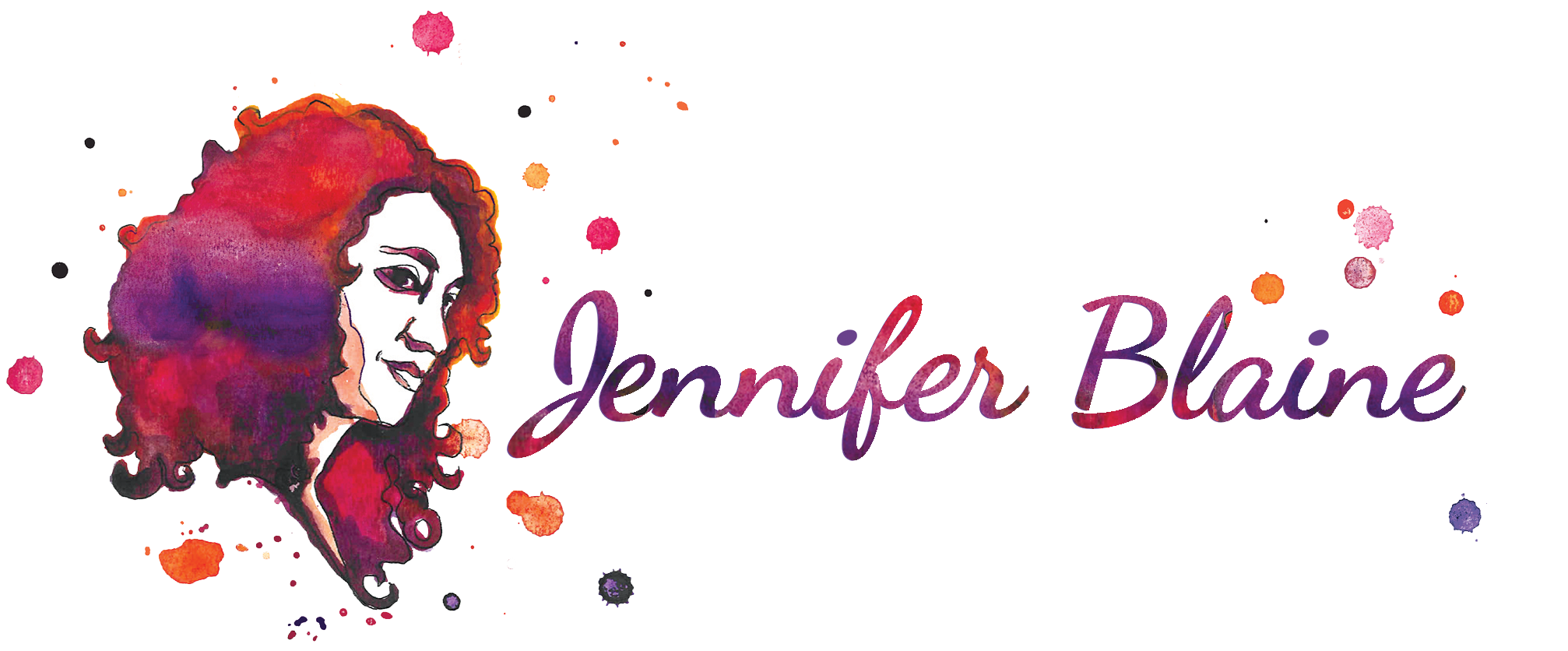

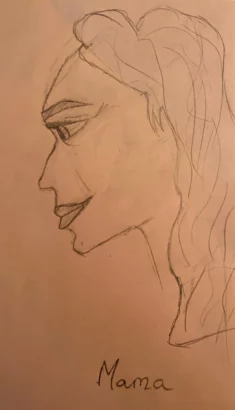 (Lily drew this picture of me New Year’s Eve)
(Lily drew this picture of me New Year’s Eve)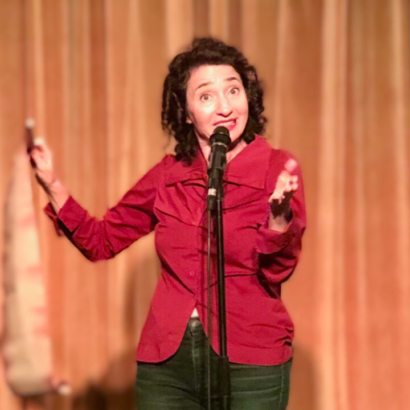

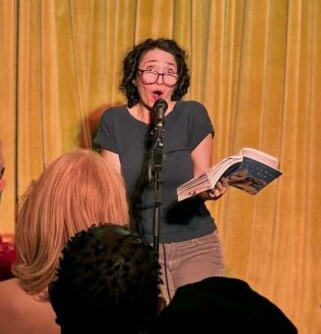
 Read full article
Read full article 